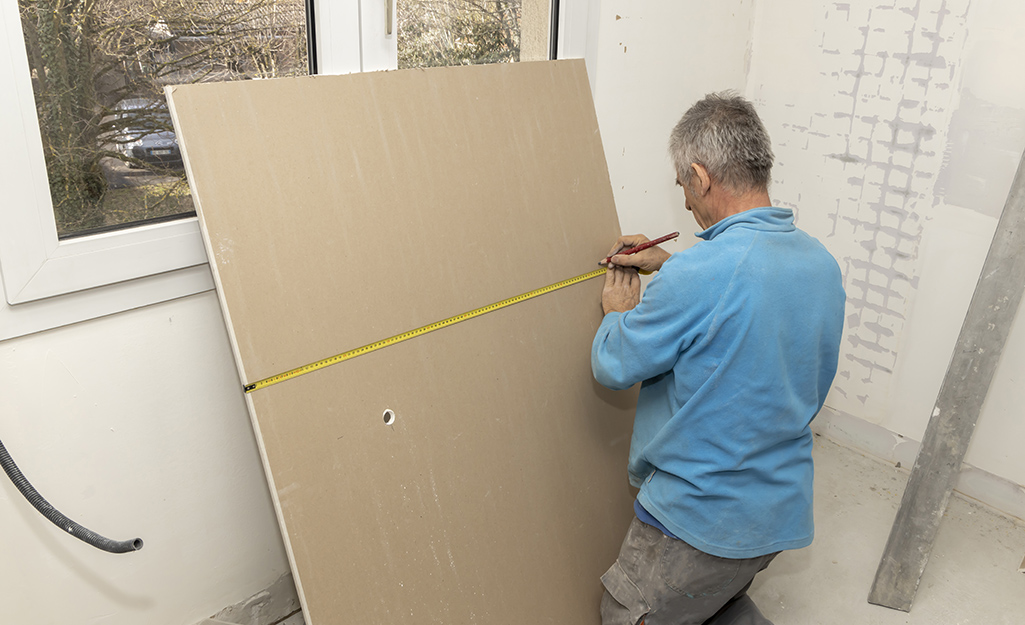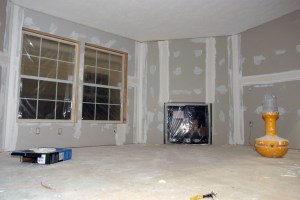
When estimating the cost of drywalling your basement, there are several factors you should consider. This includes what type of drywall and how much you need. It also depends on how big the space is. You will pay more if you have a complicated design or a shape that is irregular. If you're only looking to drywall the walls in a small space, however, it might be cheaper.
The most common drywall thickness for ceilings is 5/8-inch, which is a perfect combination of strength and flexibility. Another popular choice is greenboard. This is most commonly used for bathrooms. These drywalls are protected from moisture and mold thanks to a special treatment.
It is also important to decide whether you want a drop ceiling drywall or regular drywall. This will affect the basement's cost. A drop ceiling system makes it easier to access overhead wiring and pipes. The majority of drywall projects require heavy lifting and ladder work. An experienced contractor will save you much time and money in terms of material and labor.

There are also specialty drywall options, like fire-rated drywall. This type of drywall can make your basement more economical, but it can be very expensive. It can cost anywhere from $1 to $2 per square feet.
The cost of drywalling basements will depend on the size of the basement. If your basement is very large, you will need more materials and labor. You may also need to obtain a permit from your local municipality. Keep in mind that the cost of a basement may increase if you have to install additional items such as recessed lighting.
Some basements are already finished so you don't have to spend the full price of drywalling. A permit may be required to ensure the safety of your family and your drywall.
Storm windows should also be installed in basements with cold climates to stop water entering the home. You should also insulate your basement to prevent moisture buildup. You may find that your basement was dug into the ground. If the joists are damaged, you'll need to fix them before you can put drywall on them.

Purchase textured panels to lower the cost of basement drywalling. These panels are available in a variety of colors and sizes. These panels are great for dampening sound, and can be easily mounted to the wall.
It takes more effort to properly drywall a basement than it does to hang drop ceilings. This means that you will need more skilled workers to do the job. You will spend three times as much to drywall your basement than to hang a drop-ceiling.
There are many methods to drywall your basement. You can choose from many to make it as unique and effective as possible. Drywalling can help to prevent moisture from building up in your basement.
FAQ
How can you remodel a house without spending any money?
When renovating a home without spending money, the following steps should be followed:
-
Plan your budget
-
Find out what materials are required
-
Decide where you want them to go
-
Make a list.
-
Determine how much money you have
-
Plan your renovation project
-
Get started on your plans
-
Do some online research
-
Ask family and friends for their help
-
Get creative
How can I avoid being ripped off while renovating my home?
To avoid being scammed, it is essential to fully understand the terms of your contract. Read the fine print before signing any contract. Do not sign unsigned contracts. Always request copies of signed contracts.
How do I select a competent contractor?
Ask friends and family for recommendations when selecting a contractor. Check out online reviews. It is important to confirm that the contractor that you choose has worked in the same area as you. Refer to previous clients and verify their references.
Are you able to live in a renovated house?
Yes, I am able to live in a house and renovate it.
Are you able to live in your house while the renovations are ongoing? The answer depends on how long the construction work takes. If the renovation lasts less then two months, then it is possible to live in your home while it is being constructed. However, if the renovation project lasts longer than two months, then no, you cannot live in your home while the renovation is taking place.
The reason why you should not live in your home when there is a major construction project going on is because you might get hurt or even killed due to falling objects from the building site. The heavy machinery and noise pollution at the job site can also cause dust and noise pollution.
This is especially true if your house has multiple stories. In this case, the sound and vibration created by the construction workers might cause severe damage to your property and its contents.
As I mentioned before, while your home is being remodeled, you'll have to manage the inconveniences of living in temporary shelters. This means you won't be able to use all the amenities in your own home.
When your dryer and washing machine are in repair, for example, you won't have access to them. Additionally, the smell of paint fumes or other chemicals will be a constant annoyance as well as the banging sound made by workers.
All these things can lead to anxiety and stress in your family. To avoid becoming overwhelmed by these situations, it's important to plan ahead.
When you decide to start renovating your home, it is best to do some research first so that you can avoid making costly mistakes along the way.
You should also seek professional help from a reputable contractor to ensure everything runs smoothly.
Can I rent a dumpster?
After completing a home renovation, you can rent an dumpster. Renting out a dumpster is an excellent way to keep your yard tidy and free from debris.
How important is it that you are preapproved for a loan?
Getting pre-approved for a mortgage is very important because it gives you an idea of how much money you need to borrow. It also helps you determine whether or not you qualify for a particular loan program.
What should I look for when buying a home?
Before purchasing a new home, make sure that you have enough money saved up to cover closing costs. You might consider refinancing your mortgage if you don't have enough money.
Statistics
- The average fixed rate for a home-equity loan was recently 5.27%, and the average variable rate for a HELOC was 5.49%, according to Bankrate.com. (kiplinger.com)
- Design-builders may ask for a down payment of up to 25% or 33% of the job cost, says the NARI. (kiplinger.com)
- A final payment of, say, 5% to 10% will be due when the space is livable and usable (your contract probably will say "substantial completion"). (kiplinger.com)
- Rather, allot 10% to 15% for a contingency fund to pay for unexpected construction issues. (kiplinger.com)
- ‘The potential added value of a loft conversion, which could create an extra bedroom and ensuite, could be as much as 20 per cent and 15 per cent for a garage conversion.' (realhomes.com)
External Links
How To
Five Things You Must Know Before Starting Your Home Renovation
-
Do you really want this? It's likely that you will need assistance if you plan to tackle a large home improvement project, such as remodeling your kitchen or bathroom or building a new home. However, if you feel unsure about your ability to complete such a big task by yourself, you might consider hiring someone to help you. It can take up your time and cost you money. You won't reap the benefits. Instead, hire someone who has experience in this field to assist you. They'll save you a lot of hassle and stress, and you'll still end up with a beautiful space to live in.
-
How much should you spend? This is a common question, but it can make renovations more expensive. It's because you'll most likely be responsible for paying back the majority of the costs. Stick to your budget if you have one! You could wind up spending a lot and not getting any return.
-
Should I hire professional tradespeople or DIY? - There is no right or incorrect answer. However, we recommend hiring professional tradespeople when you can afford them. They'll give you the best advice possible on how to proceed with your particular project. They'll install your plumbing correctly, provide a warranty, and ensure everything goes according to plan. DIY projects often involve a lot trial and error. You'll learn a lot the hard way. There will be many problems along the way.
-
What are my options? - Don't underestimate the cost of a renovation project. Even if you think you can manage it on your own, you might find that you need to borrow money from friends and family just to cover the bills. And if you're planning to sell your current property soon after completing the renovations, you'll definitely need to factor in the price of selling it into your calculations.
-
Where should I begin? There is no right or wrong place to begin when it comes to starting. But we suggest you choose something that you enjoy working on. You'll feel more motivated to work and less likely to procrastinate. Also, avoid places that are difficult to maintain. If you have to deal with dirt and dust, don't try to redecorate the living room.